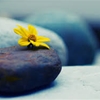Spirituality & Personal Growth
The College for Bishops Leadership Institute was established to provide educational resources for new bishops as well as trending informational resources for all bishops. Spirituality & Personal Growth focuses on specific resources such as:
New items are added monthly. To comment on current items or suggest additional topics and/or resources, please use the feedback form at the bottom of this page.
Emotional Health & Well Being
the opposite of toxic positivity
Countless books have been written on the “power of gratitude” and the importance of counting your blessings, but that sentiment may feel like cold comfort during the coronavirus pandemic, when blessings have often seemed scant. Telling someone to “stay positive” in the middle of a global crisis is missing out on an opportunity for growth, not to mention likely to backfire and only make them feel worse. Tragic optimism, on the other hand, involves the search for meaning amid the inevitable tragedies of human existence, something far more practical and realistic during these trying times.
Tough compassion--here’s what it is and why you need to practice it
Among some, a compassion-centered lifestyle is one shared in breezy, pastel-colored Insta posts and involves attending idyllic retreats and practicing meditation. And giving someone else an honest piece of our minds isn’t it. It might be time to paint a new picture of compassion. When it comes to reducing suffering in the world, an uncompromising approach to compassion often trumps a pastel-hued one — and it’s an approach you can try when other attempts to engage with difficult people fail.
the great unmasking
David Brooks writes that, for more than a year, we were unsafe and we had to wear masks. But the physical masks we wore were layered on top of all the psychological masks we had put on, out of fear, in the years before Covid: masks such as productivity, essentialism, self-doubt, and distrust. As we take off the physical masks, it seems important that we take off the psychological masks as well.
How to detox from election anxiety, according to mental health experts
Most states have finished counting votes and Biden has been named president-elect. So it’s time, mental health experts say, to reset and start thinking about life post-election, which will not be without stressors. Unfortunately, we’ve worn ourselves out, and we were already worn out. Here are some tips for detoxing from the election in a way that allows you to stay informed while still giving your brain a much-needed break.
How to Wait Well
Waiting has come to characterize much of life in 2020. We wait for ‘normal life’ to return, and have become living buffering icons with no sense of when the wait will cease. But there is a way to reclaim waiting from these negative encounters with delay. We can wait better, but that requires a radical reorienting of our perspective on waiting. Here are some concrete actions we can take.
the social distancer’s guide to urban etiquette and ethics
For many, the long-developed norms about how to be a good neighbor and urban citizen have been entirely upended by the rules of coronavirus. The very term “social distance” suggests that you not engage in normal interactions with other people. And yet the strains of a global pandemic demand that we give our best selves to other people if we can.
The Best Life Possible
Many people live with chronic afflictions that, at best, prevent them from functioning at their highest level and, at worst, severely debilitate their lives and require chronic medical care.In the absence of a cure, people want to live the best life they possibly can, regardless of their affliction or disability. While each person and each condition presents its own set of challenges, there are some unifying principles in helping people who are suffering from chronic illnesses to live better, more meaningful lives.
Can We Talk About...Death?
Most of us don’t want to hear bad news, especially the bad news of a terminal diagnosis. And most of us don’t want to talk about death, or plan for it. And yet, in recent years, the thinking about this is beginning to change as our aging population starts changing its views of death. More hope, less grim reaper?
How to prepare yourself for a good end of life
7 in 10 Americans hope to die at home. But half die in nursing homes and hospitals, and more than a tenth are cruelly shuttled from one to other in their final three days. Pain is a major barrier to a peaceful death, and nearly half of dying Americans suffer from uncontrolled pain. Here are some suggestions about how to get the best from our imperfect health care system and how to prepare for a good end of life.
As we ponder the first-world scope of our possessions, I wonder, as Christians, should we even own property? After all, in the early church, believers held everything in common, and the Hutterites and other Anabaptist groups have set admirable examples of how to live with few material belongings. What sort of relationship should today’s Christian maintain with material possessions? See also the following TED Talk on possessions:
Looking for a New Tool for Reflection? Make a List!
The process of making lists slows us down, helps us name what we truly want, educates our desires, and calms our anxieties. Obviously, the powerful lists above differ from grocery lists or to-do lists, helpful as these are for daily living. Lists that take us into mindfulness require us to notice things we would otherwise overlook. The secret of a good list is locating a candid category that engages a curious mind.
Brene Brown on how to reckon with emotion and change your narrative
In navigation, dead reckoning is how you calculate your location. It involved knowing where you’ve been and how you got there—speed, route, and wind conditions. It’s the same with life: we can’t chart a new course until we find out where we are, how we cam to that point, and where we want to go. When you reckon with emotion, you change your narrative. You have to acknowledge your feelings and get curious about the story behind them. Then you can challenge your confabulations and get to the truth.
Want to be an Outstanding Leader? Keep a Journal.
Research has documented that outstanding leaders take time to reflect. Their success depends on the ability to access their unique perspective and bring it to their decisions and sense-making every day. Extraordinary leadership is rooted in several capabilities: seeing before others see, understanding before others understand, and acting before others act. A leader’s unique perspective is an important source of creativity and competitive advantage. But the reality is that most of us live such fast-paced, frenzied lives that we fail to leave time to actually listen to ourselves













